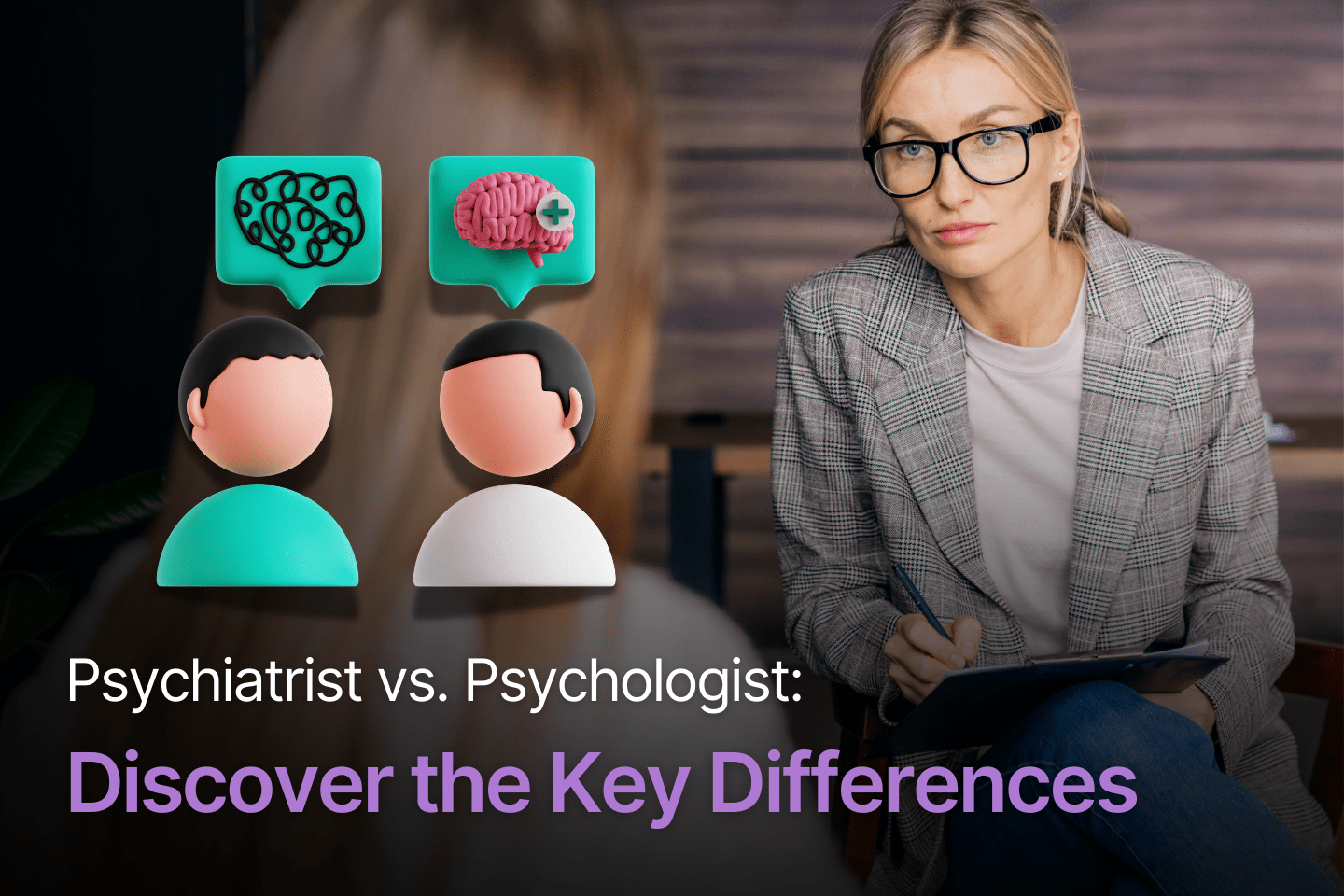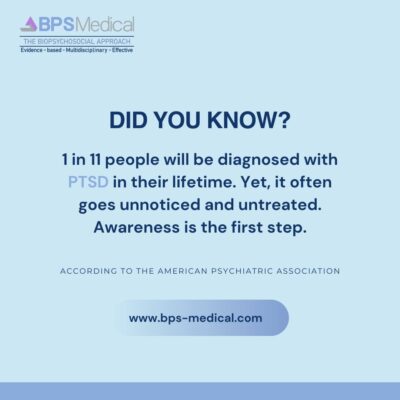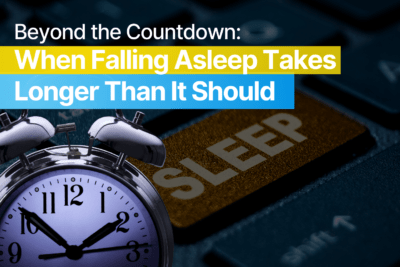
Home » Psychiatrist vs Psychologist: Comprehensive Guide to Mental Health Care
Psychiatrist vs Psychologist: Understanding the Differences and Their Roles in Mental Health Care
In the realm of mental health, understanding the roles and differences between a psychiatrist and a psychologist is crucial. Both professions are integral to diagnosing, treating, and managing mental health disorders, yet they approach patient care from distinct perspectives. This blog will delve into the nuances of each profession, providing statistics, facts, and resources to offer a comprehensive guide.
Meet Dr. Brian F. Greer, an expert child psychiatrist with 30+ years of experience. Now accepting new patients and offering virtual consultations. Book today!
Understanding the Differences: Psychiatrist vs Psychologist
Psychiatrist: Psychiatrists are medical doctors (MDs or DOs) who specialize in mental health. Their training includes medical school, a residency in psychiatry, and often additional fellowship training in a specific area of mental health such as child and adolescent psychiatry, geriatric psychiatry, or substance abuse. Psychiatrists are uniquely qualified to diagnose mental health conditions, prescribe medication, and provide a range of treatments, including psychotherapy, electroconvulsive therapy (ECT), and other medical interventions.
Psychologist: Psychologists typically hold a doctoral degree in psychology (Ph.D. or Psy.D.). Their education focuses on the study of the mind and behavior, encompassing various areas such as clinical psychology, counseling psychology, and school psychology. Psychologists are trained in psychotherapy, psychological testing, and behavioral interventions but do not prescribe medication. They often work in conjunction with psychiatrists or other medical professionals to provide comprehensive care.
Education and Training
Psychiatrist Education Path:
- Bachelor’s Degree (4 years)
- Medical School (4 years)
- Residency in Psychiatry (4 years)
- Optional Fellowship (1-2 years)
Psychologist Education Path:
- Bachelor’s Degree (4 years)
- Doctoral Degree in Psychology (4-7 years)
- Supervised Clinical Experience (1-2 years)
The extensive medical training of psychiatrists allows them to understand the complex relationship between mental and physical health, making them adept at managing medications and understanding their physiological impacts. Psychologists, on the other hand, bring a deep understanding of cognitive and emotional processes, often focusing on therapy and behavioral interventions.
Scope of Practice
Psychiatrists:
- Diagnose mental health disorders
- Prescribe and manage medications
- Provide psychotherapy
- Conduct physical exams and order lab tests
- Perform medical procedures like ECT
Psychologists:
- Diagnose mental health disorders through assessments and tests
- Provide psychotherapy and counseling
- Conduct psychological testing (e.g., IQ tests, personality assessments)
- Develop and implement behavioral intervention plans
- Conduct research in various areas of psychology
Psychiatrist vs Psychologist: Which Mental Health Professional is Right for You?
Treatment Approaches
Medication Management: Psychiatrists are licensed to prescribe medications, which can be crucial for treating severe mental health conditions such as schizophrenia, bipolar disorder, and major depressive disorder. Medication management often requires ongoing monitoring and adjustments, a task suited to the psychiatrist’s medical training.
Therapeutic Interventions: Psychologists specialize in various forms of therapy, including cognitive-behavioral therapy (CBT), psychodynamic therapy, humanistic therapy, and others. They use these therapeutic techniques to help individuals understand and change their behavior, cope with life challenges, and improve their mental health.
Psychiatrist vs Psychologist: What You Need to Know for Effective Mental Health Treatment
Collaborative Care Model: Combining Expertise for Better Mental Health Outcomes at BPS Medical
BPS Medical’s Integrated Approach:
At BPS Medical, we recognize the immense value of combining the expertise of both psychiatrists and psychologists. Our integrated model ensures that patients receive comprehensive treatment for a variety of conditions, including:
- Mental Health Disorders: Depression, anxiety, bipolar disorder, schizophrenia, and more.
- Pain Management: Chronic pain conditions that benefit from psychological support and medication.
- Sleep Disorders: Insomnia, sleep apnea, and other sleep-related issues.
By working together, our psychiatrists and psychologists can develop personalized treatment plans that address both the psychological and physiological aspects of mental health. Here’s how our integrated approach works:
Collaborative Assessment:
- Psychiatrists and psychologists jointly assess patients to create a thorough understanding of their mental and physical health needs.
- This comprehensive assessment allows for accurate diagnosis and tailored treatment plans.
Medication Management:
- Psychiatrists manage and adjust medications to ensure optimal treatment efficacy.
- Regular monitoring and follow-ups help minimize side effects and achieve the best outcomes.
Therapeutic Interventions:
- Psychologists provide various forms of therapy, including cognitive-behavioral therapy (CBT), psychodynamic therapy, and more.
- Therapy sessions are designed to help patients develop coping strategies, understand their conditions, and make positive behavioral changes.
Ongoing Support:
- Continuous communication between psychiatrists and psychologists ensures that any changes in the patient’s condition are promptly addressed.
- Patients receive consistent support and adjustments to their treatment plans as needed.
Comprehensive Care:
- Combining medical and psychological expertise allows for addressing all aspects of a patient’s condition.
- Patients benefit from a well-rounded approach that considers their overall well-being.
Improved Outcomes:
- Studies have shown that integrated care models lead to better treatment outcomes and higher patient satisfaction.
- Our approach aims to provide the most effective and compassionate care possible.
By integrating the skills and knowledge of both psychiatrists and psychologists, BPS Medical is committed to offering the highest quality of care, ensuring that each patient receives the personalized treatment they deserve.
Is your child struggling with anxiety, ADHD, or depression?
Statistics and Facts
- Prevalence of Mental Health Disorders: According to the National Institute of Mental Health (NIMH), nearly one in five U.S. adults live with a mental illness (52.9 million in 2020).
- Effectiveness of Combined Treatment: Studies have shown that combining medication management (provided by psychiatrists) with psychotherapy (provided by psychologists) is more effective for many conditions than either treatment alone. For instance, the combination of CBT and medication is highly effective for treating anxiety disorders.
- Access to Care: The American Psychological Association (APA) highlights that integrated care models improve access to mental health services, particularly in underserved areas.
Case Studies and Resources
Case Study 1: Managing Depression
- Patient: A 35-year-old female with major depressive disorder.
- Treatment: Combination of antidepressant medication (managed by a psychiatrist) and CBT (conducted by a psychologist).
- Outcome: Significant improvement in mood, increased energy levels, and better coping strategies.
Case Study 2: Treating Anxiety
- Patient: A 28-year-old male with generalized anxiety disorder.
- Treatment: Initial medication management to stabilize symptoms, followed by therapy to address underlying cognitive patterns.
- Outcome: Reduced anxiety symptoms, improved daily functioning, and enhanced quality of life.
Resources for Further Information:
- National Institute of Mental Health (NIMH): Provides comprehensive information on mental health disorders, treatments, and ongoing research.
- American Psychological Association (APA): Offers resources on psychological practices, therapy types, and professional guidelines.
- American Psychiatric Association: Details on psychiatric practice, medication management, and mental health advocacy.
Understanding the distinct roles of psychiatrist vs psychologist is essential for anyone seeking mental health care. Psychiatrists bring a medical perspective, focusing on medication and physiological treatments, while psychologists offer deep insights into cognitive and emotional processes through therapy. At BPS Medical, we believe in the power of combining these disciplines to provide the best possible care for our patients. Whether dealing with mental health disorders, pain, or sleep issues, our integrated approach ensures comprehensive and personalized treatment plans tailored to each individual’s needs.
By promoting collaboration between psychiatrists and psychologists, we can enhance treatment outcomes and improve overall mental health care. If you or a loved one is struggling with mental health issues, consider reaching out to BPS Medical for a holistic approach that addresses all aspects of well-being.
Board-Certified Child Psychiatrist Dr. Brian F. Greer Now Seeing Patients in Fort Lauderdale. See A Psychiatrist Today!









